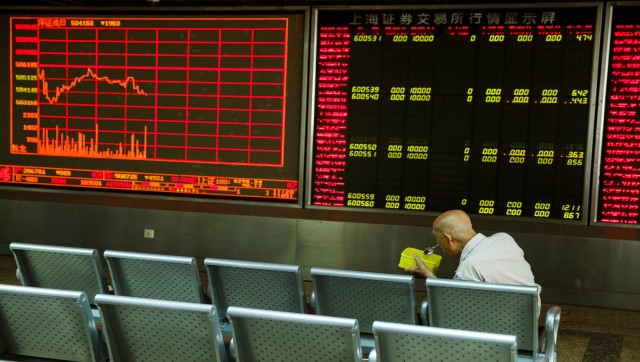As India celebrates the consecration of the Ram Temple in Ayodhya, the festive mood is overshadowed by discontent in its neighbouring countries. Pakistan has officially condemned the event and urged India to ensure the safety of religious minorities. Meanwhile, China, India’s iron brother, is grappling with significant economic challenges, leading to a mass exodus of investors and mounting losses in its financial markets.
Pakistan’s disapproval of the Ram Temple consecration reflects ongoing political tensions, with concerns raised about the safety of religious minorities. In contrast, China, facing substantial economic setbacks, witnessed a massive sell-off in its financial markets, particularly in Hong Kong. Financial market crisis in China The Hong Kong stock market is experiencing a severe downturn, marked by a 36 per cent discount on stock prices. Investors are grappling with the dilemma of whether to buy during this crisis or exercise caution, considering the unpredictable nature of the situation. Since 2021, over $6 trillion dollars have been wiped off the Chinese and Hong Kong markets, indicating the magnitude of the economic challenges. Hong Kong, once a gateway to the mainland and a vital financial hub, has seen its value drop to its lowest point in 15 months. The decline of Hong Kong’s financial prowess signifies a shift in China’s growth story, with external pressures and internal challenges contributing to the current economic climate. China’s economic growth has come to a halt, with various challenges including overcapacity in industries, weak domestic demand, and external pressures in the form of sanctions and trade wars with the US. The Chinese government acknowledges the complexity of the situation, but investors remain sceptical about the attractiveness of China as an investment destination. “The external environment has become more complex, and the severity and uncertainty have increased. Domestic demand is still insufficient. Some industries have overcapacity. Social expectations are weak. There are still many risks and hidden dangers. And there are also impediments in the domestic circulation,” said Liu Sushe, Vice Chairman of the National Development and Reform Commission. Failed attempts to reassure investors Despite Hong Kong’s attempts to woo back investors by cutting taxes on trading and launching a public relations tour, the sentiment remains unchanged. Beijing’s promises at the highest levels, including the Chinese Premier’s commitments at Davos, have failed to restore confidence among foreign investors. “We will also listen to the views of foreign businesses regularly. We will actively promote solutions as long as they are reasonable demands. All in all, no matter how the world situation changes, China will adhere to the fundamental national policy of opening up to the outside world, and the door of opening up will only open wider and wider,” said Chinese Premier Li Qiang. Investor exodus from China Foreign investors, once optimistic about China’s economic prospects, are now pulling their money out of the country. In 2022, an influx of $33 billion took a turn for the worse as chaos ensued in China’s markets. Beijing’s policies targeting major companies led to plummeting profits and valuations, prompting investors to cut their losses. The exodus of foreign capital has put pressure on China’s currency, the yuan, causing it to lose value. In 2023, the yuan dropped nearly 3 per cent against the US dollar and in the first three weeks of 2024, it lost an additional 2 per cent. By the end of 2023, investors had already dumped about 90 percent of the $33 billion they had initially invested. “Looking ahead to 2024, we also need to see that the current external environment remains complex and severe, domestic effective demand is insufficient, overcapacity in some industries, social expectations are weak, and there are many hidden risks. There are still a number of difficulties and challenges to be overcome in order to push China’s economy to further rebound and improve,” said the head of China’s Statistics Bureau, Kang Yi. Currency and economic stabilisation efforts The continuous outflow of foreign funds has put pressure on China’s currency, the yuan, leading to a loss in its value against the US dollar. To counter this, Beijing has mobilised state-owned banks to sell dollars from their reserves and exchange them for yuan in an attempt to stabilize the currency. However, financial experts in Hong Kong remain pessimistic about the yuan’s prospects. Despite these measures, financial experts in Hong Kong remain pessimistic about China’s economic outlook. The yuan is expected to remain under pressure due to bearish expectations for China’s growth in 2024. As China faces economic turmoil and political challenges in the year of the dragon, the bearish outlook suggests a challenging period ahead. The impact on China’s economy combined with geopolitical tensions raises concerns not only for the country itself but also for the global economic landscape. Views expressed in the above piece are personal and solely that of the author. They do not necessarily reflect Firstpost’s views. Read all the Latest News , Trending News , Cricket News , Bollywood News , India News and Entertainment News here. Follow us on Facebook, Twitter and Instagram.


)

)
)
)
)
)
)
)
)



